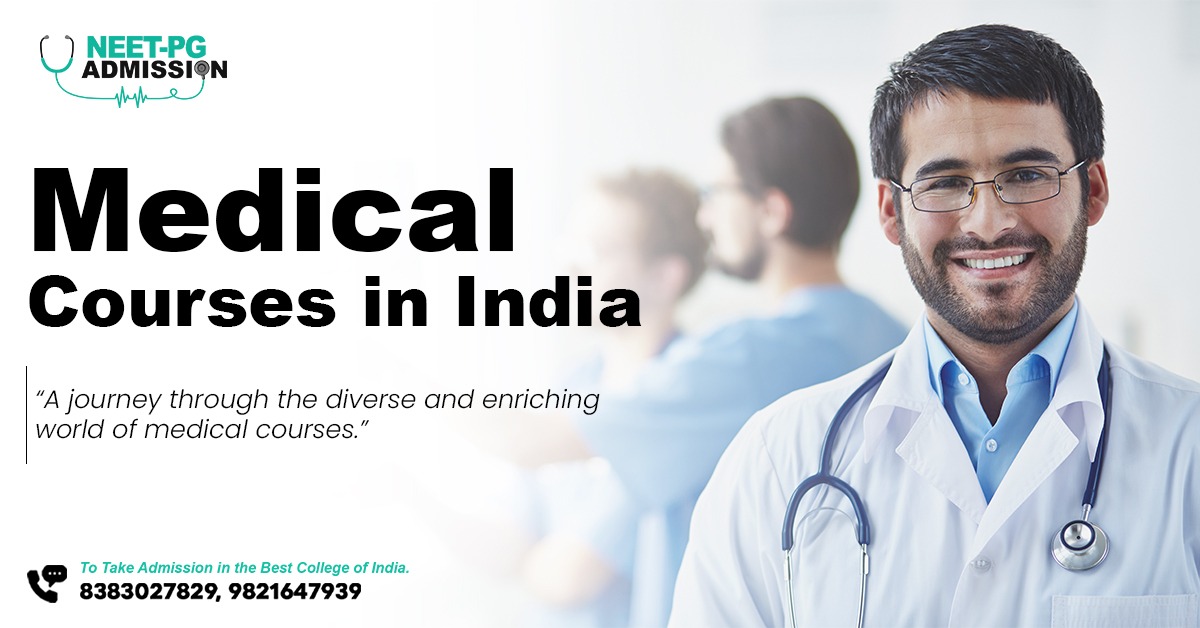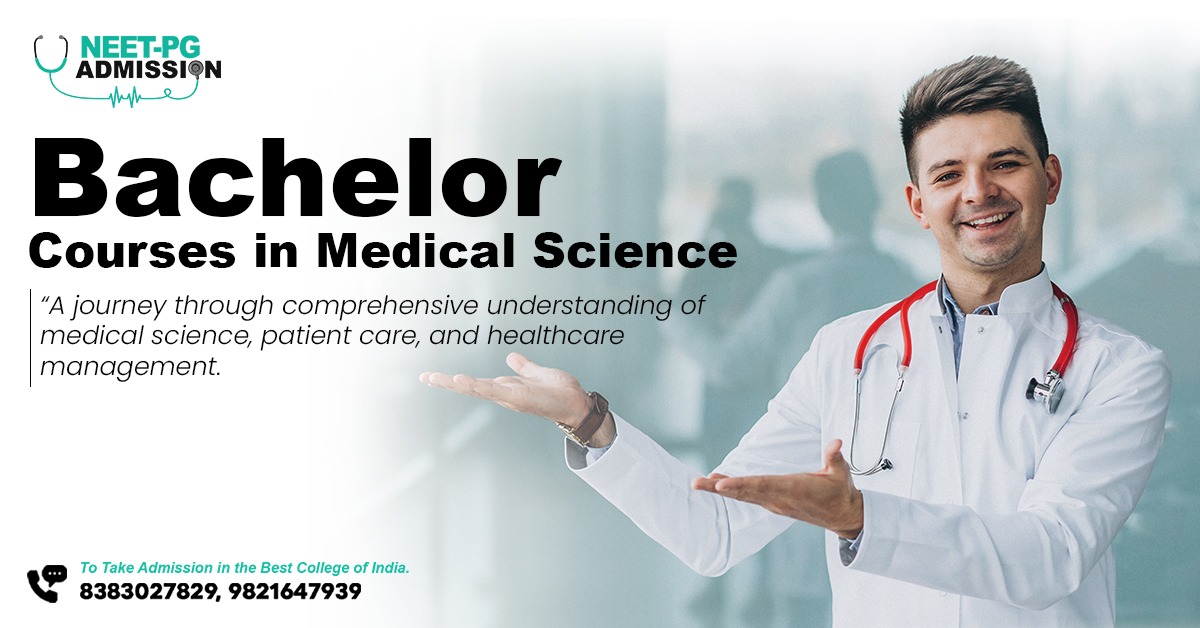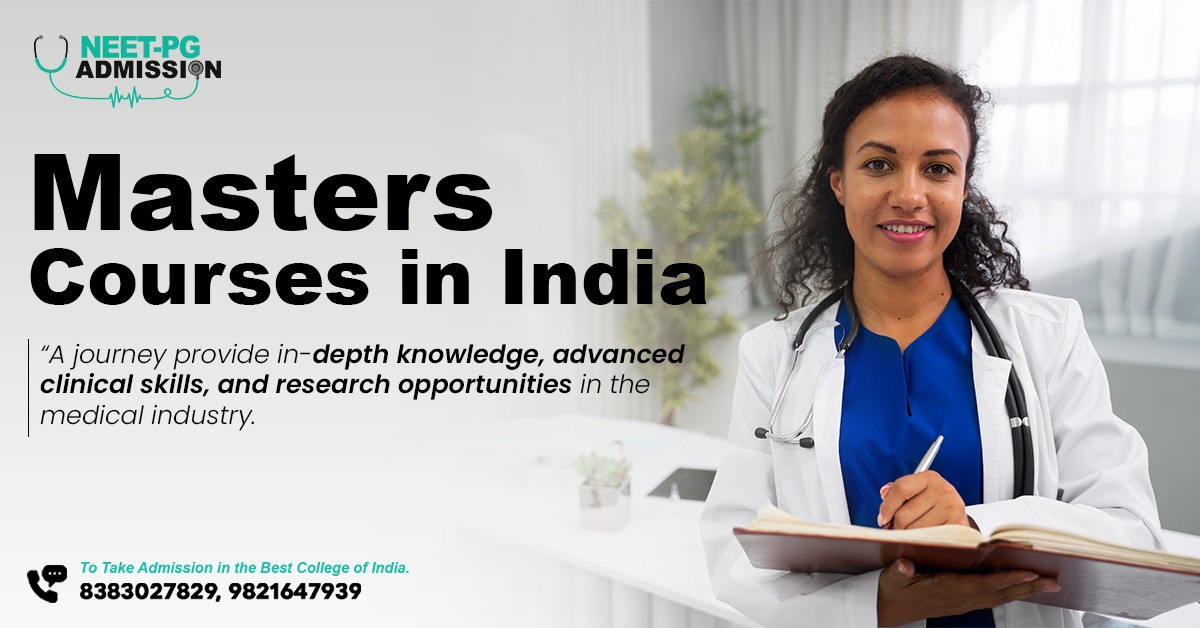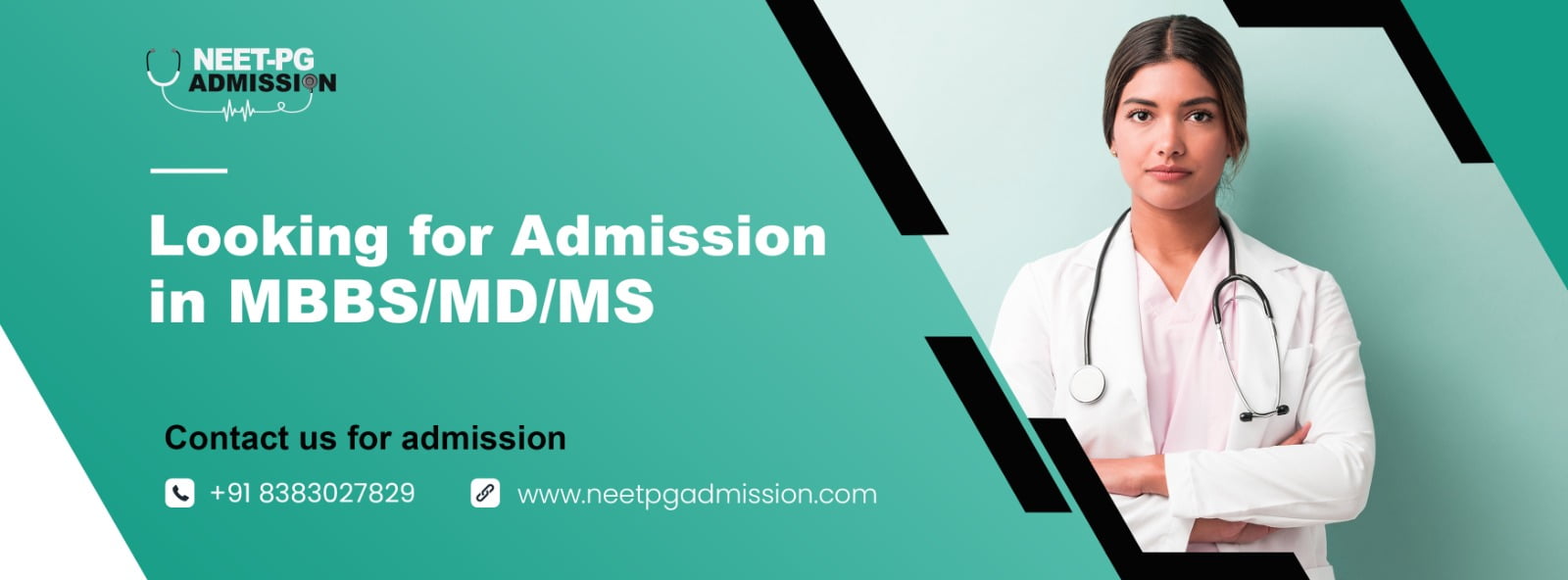
Medical Courses in India: In a world where health and well-being are paramount, the role of healthcare professionals becomes increasingly vital. If you’re passionate about making a meaningful difference in people’s lives and contributing to society’s welfare, a career in medicine might be your calling. Whether you dream of becoming a skilled surgeon, a compassionate nurse, or a dedicated medical researcher, the first step towards realizing your aspirations begins with a solid foundation in medical education. In this article , we will take you on a journey through the diverse and enriching world of medical courses, equipping you with the knowledge and skills needed to embark on a fulfilling career in the healthcare industry.
Bachelor courses
Bachelor courses in the medical field offer foundational education and training for individuals aspiring to become healthcare professionals. These programs typically provide students with a comprehensive understanding of medical science, patient care, and healthcare management. Here are some common bachelor courses in the medical field:

Degree Programs
| Degree Program | Duration (Typical) | Description | Career Opportunities |
|---|---|---|---|
| MBBS (Bachelor of Medicine, Bachelor of Surgery) | 5 to 6 years | Traditional medical degree program to become a medical doctor | Medical Doctor, Physician, Surgeon, Specialist |
| BSN (Bachelor of Science in Nursing) | 3 to 4 years | Trains students to become registered nurses | Registered Nurse, Nurse Practitioner, Nurse Educator |
| B.Pharm (Bachelor of Pharmacy) | 4 years | Focuses on pharmaceutical sciences and drug development | Pharmacist, Clinical Pharmacist, Pharmaceutical Researcher |
| B.Sc. MLT (Bachelor of Science in Medical Laboratory Technology) | 3 to 4 years | Trains students as medical laboratory technologists | Medical Laboratory Technologist, Clinical Laboratory Scientist |
| B.Sc. Biomedical Sciences | 3 to 4 years | Interdisciplinary program covering medical and biological sciences | Medical Researcher, Biomedical Scientist, Medical Lab Technician |
| BPT (Bachelor of Physical Therapy) | 4 to 5 years | Prepares students to become licensed physical therapists | Physical Therapist, Sports Rehabilitation Specialist |
| BOT (Bachelor of Occupational Therapy) | 4 to 5 years | Focuses on helping individuals regain functional independence | Occupational Therapist, Pediatric Therapist |
| BHS (Bachelor of Health Sciences) | 3 to 4 years | Provides a broad overview of healthcare and health-related topics | Healthcare Administrator, Health Educator |
| BHA (Bachelor of Health Administration) | 3 to 4 years | Focuses on healthcare management and administration | Healthcare Manager, Hospital Administrator |
| BSPH (Bachelor of Science in Public Health) | 3 to 4 years | Emphasizes disease prevention and public health promotion | Public Health Specialist, Community Health Coordinator |
Eligibility Criteria for Medical Courses Admission in India
| Educational qualification | The minimum educational qualification required for admission to medical courses in India is a 10+2 (or equivalent) degree from a recognized board with Physics, Chemistry, Biology, and English as compulsory subjects. |
|---|---|
| Minimum aggregate marks | The minimum aggregate marks required for admission to medical courses vary depending on the university or college, but they are typically between 50% and 60%. |
| Subjects | Some medical courses have specific subject requirements. For example, to study MBBS, you will need to have studied physics, chemistry, biology, and English in your 10+2. |
| Age limit | The age limit for admission to medical courses varies depending on the university or college, but it is typically between 17 and 25 years old. |
| Entrance exams | The National Eligibility cum Entrance Test (NEET) is the entrance exam for admission to medical courses in India. You will need to pass NEET with a minimum score to be eligible for admission to medical courses. |
Masters or Specialization Courses
Medical Master courses are advanced programs designed for individuals who have already completed a bachelor’s degree in a related field and want to specialize further in the medical domain. These courses provide in-depth knowledge, advanced clinical skills, and research opportunities, preparing students for highly specialized and leadership roles in the medical industry. Here are some common medical Master courses

Degree Programs
| Degree Program | Duration | Description | Career Opportunities |
|---|---|---|---|
| Doctor of Medicine (MD) | 3 years | Advanced medical degree to specialize in specific fields | Medical Specialist, Surgeon, Researcher, Academia |
| Master of Surgery (MS) | 3 years | Specialization in surgical disciplines | Surgical Specialist, Consultant Surgeon, Educator |
| Master of Science in Nursing (MSN) | 1 to 2 years | Focuses on advanced nursing practice and leadership | Advanced Practice Nurse, Nurse Administrator, Nurse Educator |
| Master of Pharmacy (M.Pharm) | 2 years | Specialization in pharmaceutical sciences and research | Clinical Pharmacist, Pharmaceutical Research Scientist |
| Master of Medical Laboratory Science (MMLS) | 1 to 2 years | Advanced training in medical laboratory technology | Clinical Laboratory Manager, Research Scientist |
| Master of Science in Biomedical Sciences | 1 to 2 years | Advanced study in biomedical research and laboratory work | Biomedical Researcher, Laboratory Manager |
| Master of Physical Therapy (MPT) | 2 years | Specialization and advanced training in physical therapy | Specialized Physical Therapist, Rehabilitation Specialist |
| Master of Occupational Therapy (MOT) | 2 years | Advanced training in occupational therapy | Advanced Occupational Therapist, Researcher |
| Master of Public Health (MPH) | 1 to 2 years | Focuses on public health policy, management, and research | Public Health Specialist, Epidemiologist, Health Policy Analyst |
| Master of Health Administration (MHA) | 1 to 2 years | Emphasizes healthcare management and administration | Healthcare Administrator, Hospital Manager |
| Master of Health Informatics (MHI) | 1 to 2 years | Focuses on health data management and information systems | Health Informatics Specialist, Healthcare IT Manager |
| Master of Health Sciences (MHS) | 1 to 2 years | Specialization in various healthcare fields | Healthcare Consultant, Health Educator |
PG Medical Course Eligibility Criteria
| Educational qualification | Candidates must have a valid MBBS degree or Provisional MBBS Pass Certificate recognized by the Indian Medical Council (MCI). |
|---|---|
| Age limit | The minimum age limit for admission to PG medical courses is 21 years on or before the 31st day of December of the year of admission. |
| National Eligibility cum Entrance Test (NEET PG) | NEET PG is the national-level entrance exam for admission to postgraduate medical courses in India. Candidates must qualify for NEET PG in order to be eligible for admission to PG medical courses. |
| Registration with MCI | Candidates must have permanent registration with the Medical Council of India (MCI) or State Medical Council (SMC). |
| Internship | Candidates must have completed one year of compulsory internship on or before the date of NEET PG examination. |
FAQ for Bachelor and Master Course in Medicine
- What is the difference between MD and MS?
MD and MS are both postgraduate medical degrees, but they differ in their focus. MD is a Doctor of Medicine degree, while MS is a Master of Surgery degree. MD programs typically focus on the theoretical aspects of medicine, while MS programs focus on the practical aspects of surgery.
- What are the benefits of getting an MD or MS?
There are many benefits to getting an MD or MS. Some of the benefits include:
- Increased earning potential: MD and MS graduates typically earn more than those with only an MBBS degree.
- More career opportunities: MD and MS graduates have access to a wider range of career opportunities in medicine.
- Advanced knowledge and skills: MD and MS programs provide students with advanced knowledge and skills in their chosen field.
- Professional recognition: MD and MS degrees are recognized by medical boards and other professional organizations.
- What are some tips for getting into MD or MS programs?
Here are some tips for getting into MD or MS programs:
- Get good grades in your MBBS studies: Your MBBS grades will be a major factor in your application.
- Score well on the NEET PG: The NEET PG is a competitive exam and you will need to score well in order to be considered for admission.
- Get involved in extracurricular activities: Extracurricular activities can help you stand out from other applicants.
- Write a strong personal statement: Your personal statement should be well-written and should highlight your strengths and why you want to pursue an MD or MS.
- Interview well: The interview is your chance to make a good impression on the admissions committee.
- Can I get admission to MBBS without appearing for the NEET-UG exam?
No, NEET-UG is the mandatory entrance exam for MBBS admission in India. It is not possible to get admission to MBBS without qualifying for the NEET-UG exam.
- Are there any distance learning or online MBBS courses available in India?
No, MBBS is a regular, full-time course offered in medical colleges in India. There are no distance learning or online MBBS courses available due to the practical and hands-on nature of medical education.
- Is the MBBS degree obtained from private medical colleges in India recognized?
Yes, the MBBS degree obtained from recognized private medical colleges in India is valid and recognized by the Medical Council of India (MCI) and other regulatory bodies. It holds the same value as the degree from government medical colleges.

